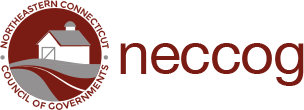Mission
Working together, the Statewide Recovery Steering Committee, Regional Recovery Steering Committees, and local Recovery Committees, will…coordinate efforts at the state, regional, and local levels and provide support to efforts to develop a comprehensive and effective path to recovery from the COVID-19 public health emergency for all Connecticut residents and all communities.
This mission is further divided into two categories: (1) short term, immediate unmet needs and (2) long term recovery.
The COVID pandemic’s impact here in Connecticut and on the world has been dramatic. Connecticut is now engaged proactively addressing the short-term needs and long-term strategies needed to not only fully recover – but to emerge stronger. To that end, Connecticut is taking a regional approach – based on the five regions coordinated by the Department of Emergency Management and Homeland Security (DEMHS) and organized under Regional Emergency Support Function 14 – Long-Term Recovery and Mitigation – within the Connecticut’s Disaster Recovery Framework.
The Region IV has established a regional (each of the five regions has one) Recovery Steering Committee. Each Regional Steering Committee is made up of a cross section of the 42-town and two tribal nation region in terms of perspectives. A key function is to seek out through our Working Groups input from impacted constituencies regarding the pandemic in terms of unmet needs (short and long term), solutions/strategy to those needs – including funding and ways we can be better prepared for future challenges. A key focus is to address the racial and economic disparities that this pandemic has so vividly brought to the forefront Advising the Steering Committee are three Working Groups:
- Health & Social Services / Housing Working Group
- Economic, Natural & Cultural Resources Working Group
- Community Planning & Capacity Building/Infrastructure Working Group
A key function is to seek out through our Working Groups input from impacted constituencies regarding the pandemic in terms of unmet needs (short and long term), solutions/strategy to those needs – including funding and ways we can be better prepared for future challenges. A key focus is to address the racial and economic disparities that this pandemic has so vividly brought to the forefront.
Staff from the two regional councils of governments (Southeastern Connecticut Council of Governments (SCCOG) seccog.org and the Northeastern Connecticut Council of Governments (NECCOG) neccog.org) will be providing staff to guide and assist DEMHS with the recovery process.
A first step or focus for this work is the identification of Unmet Needs. The Unmet Needs reporting process is meant to ensure that any high-level unmet need that requires Emergency Support Function (ESF), regional, or state intervention is elevated to the state level for review and action. Unmet needs reported via this process are not meant to document individual case needs, but provide information about broader issues that might need more support than can be provided at the local level. The reporting process will not collect information about needs that can be addressed with existing
resources or programs. Once an unmet need has been identified by Steering Committee or working group members, SCCOG and NECCOG staff will collect additional information about the reported need and determine whether the
need can be addressed with existing resources or programs. Needs that cannot be addressed at the local/regional level will be forwarded to the State agencies for review.Identifying unmet needs is done by following these steps:
- What is the need?
- How many people have been affected?
- What actions have been taken to address the need?
- What solutions are proposed to address the need?
- Was this an unmet need prior to the COVID-19 pandemic?
- If there is a funding need, approximately how much funding is required?
- Are there any supporting documents that would be helpful regarding this unmet need?
Unmet needs reports will be reviewed by State agency staff on at least a weekly basis and State agency staff will work to identify solutions to meet the unmet need(s). The State currently conducts interagency COVID-19 response calls with Councils of Governments staff every Monday afternoon.
Region 4 Recovery Steering Committee Membership and Bios
Meeting Information :
Agendas, Meeting Notes & Recordings
All meetings are open to the public. Agenda and meeting links are available at neccog.org and seccog.org .
Region 4 Recovery Steering Committee
- February 25, 2021 Agenda (PDF) | Notes | Audio | Video
- January 21, 2021 Agenda (PDF) | Notes | Audio | Video
- November 19, 2020 Agenda (PDF) | Notes | Recording | Video
- July 28, 2020 Agenda (PDF) | Notes | Recording Part 1 | Recording Part 2
- July 8, 2020 Agenda (PDF) | Notes | Recording | Video
- June 24, 2020 Agenda (PDF) | Notes | Recording | Video
Health & Social Services/Housing Working Group
- May 18, 2021 Agenda | Notes
- April 20, 2021 Agenda | Video | Notes
- March 16, 2021 Agenda | Video | Notes
- February 16, 2021 Agenda | Video| Notes
- January 21, 2021 Agenda | Notes
- August 18, 2020 Agenda | Notes
Economic/Natural & Cultural Resources Working Group
- May 18, 2021, 11:00 Agenda | Notes
- April 20, 2021 Agenda | Video | Notes | GRI Attachment
- March 16, 2021 Agenda | Video | Notes
- February 16, 2021 Agenda | Video| Notes
- January 26, 2021 Agenda | Slides |Notes
Community Planning & Capacity Building/Infrastructure Working Group
- April 20, 2021 Agenda | Notes | Audio | Video
- March 16, 2021 Agenda | Notes | Audio | Video
- February 16, 2021 Agenda|Notes|Audio|Video
- January 26, 2021 Agenda | Notes |Audio|Video

